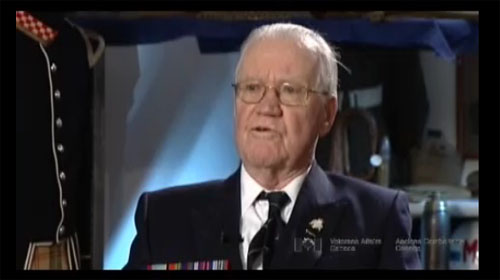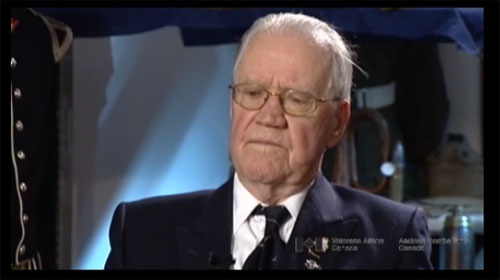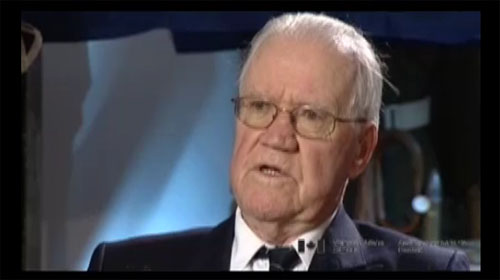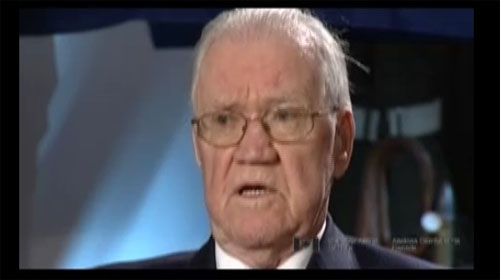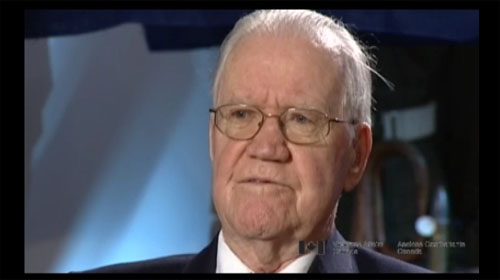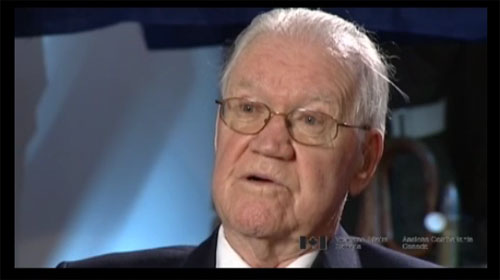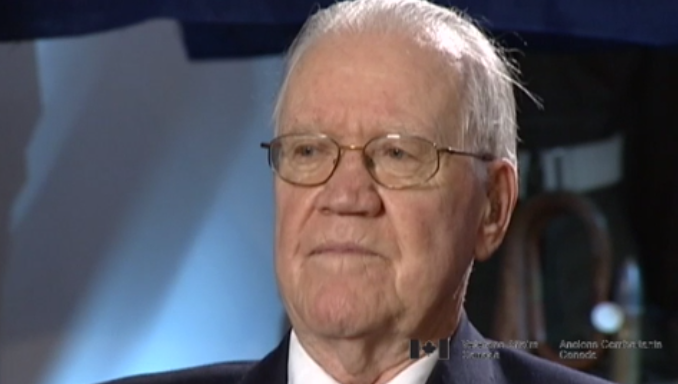Friendly Fire
Heroes Remember
Friendly Fire
Transcript
Description
Mr. Fawcett describes a forced march between two POW camps and being strafed by friendly aircraft.
Charlie Fawcett
Mr. Fawcett was born June 15, 1922 and grew up in Saskatoon, Saskatchewan. He first became interested in planes when his father took him to Regina to go for a ride in one. It was this early interest in aviation that led him to sign up with the air force in 1942. He received gunnery training at Dafoe, SK and from there went overseas in the latter part of 1942. He chose to be a rear gunner as it was the fastest way to get overseas. Once in England he was assigned to an RAF squadron, stationed in Yorkshire, that consisted of an Australian pilot and an all English crew. In 1943, while on a trip to Czechoslovakia, they were shot down over Germany by a Messerschmitt. After bailing out of the aircraft Mr. Fawcett landed in a tree. The following day he was taken prisoner by the Germans. Over the next 2 ½ years he was interned in three different POW camps. Mr. Fawcett remained a POW until the end of the war.
Meta Data
- Medium:
- Video
- Owner:
- Veterans Affairs Canada
- Duration:
- 3:04
- Person Interviewed:
- Charlie Fawcett
- War, Conflict or Mission:
- Second World War
- Battle/Campaign:
- Bomber Command
- Branch:
- Air Force
- Units/Ship:
- 158 Squadron
- Rank:
- Sergeant
- Occupation:
- Rear Gunner
Related Videos
- Date modified:



